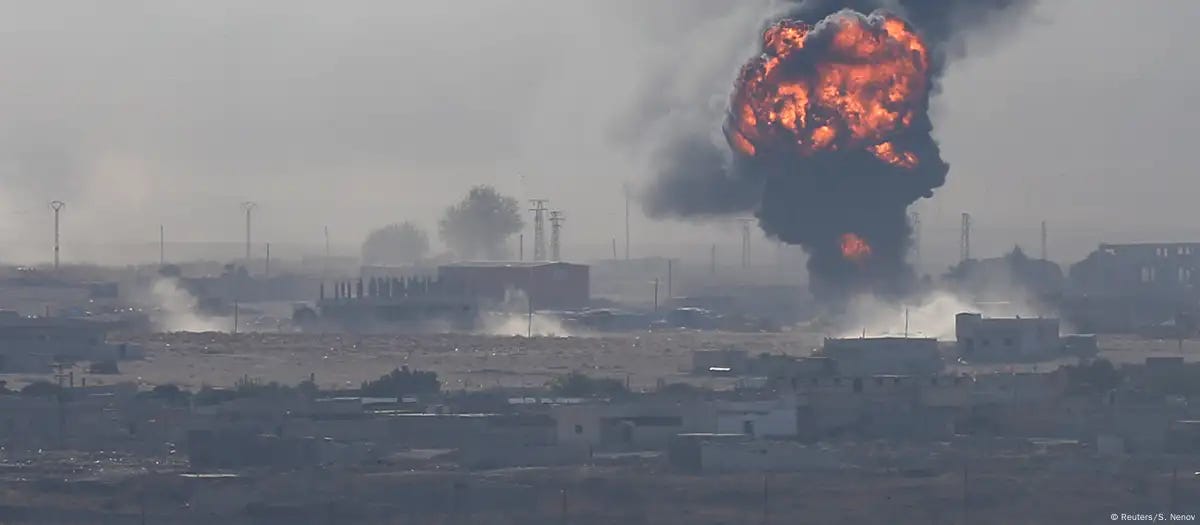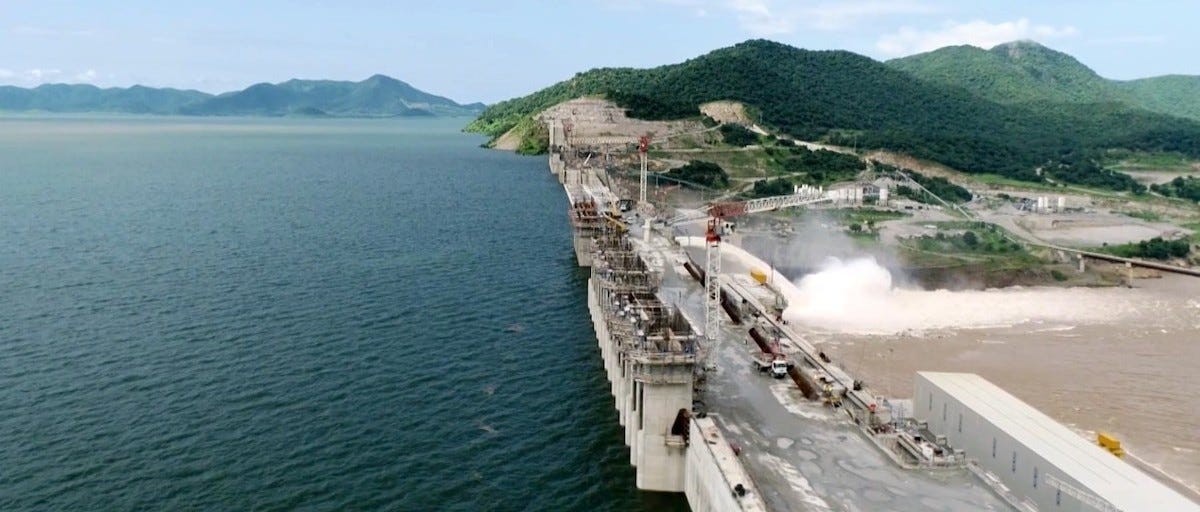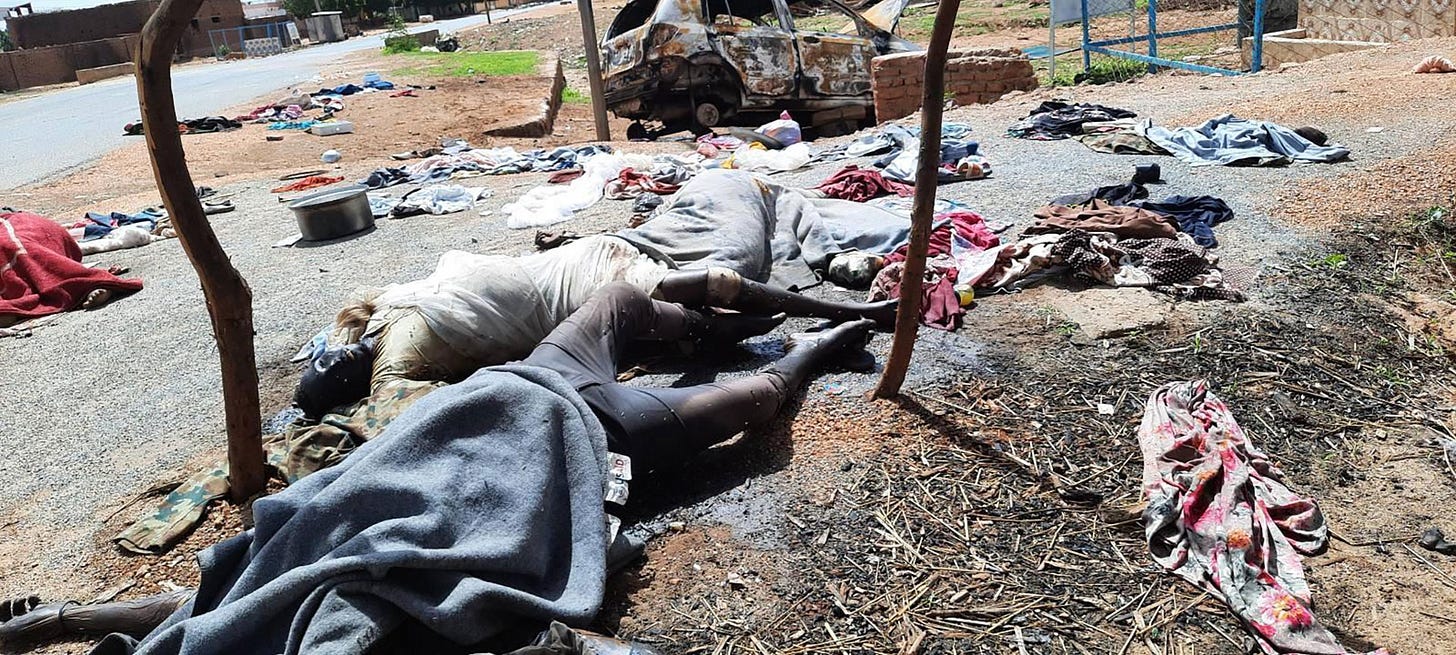If you thought 2024 was tumultuous, wait until you see what 2025 has in store for us. We get all the same messes of 2024, only with the mercurial Donald J. Trump at the helm. Trump could bring good things as well as bad, and I do not wish to speculate as to the likelihood of either. What I can say with certainty is that Trump will bring greater unpredictability and potentially greater instability. Instability is not always bad, given that sometimes shaking things up and acting decisively in new ways can bring major opportunities. But instability generally means risk.
So what should we be watching? The conflicts to watch are in the Middle East, Ukraine, and the Horn of Africa. Then, of course, there is the South China Sea and the Taiwan Strait, and the Korean Peninsula’s capacity for “black swan” events remains undiminished. Sudan needs to be mentioned, but, oddly enough, no one cares, and it might be a case in which a major conflict about which no one cares might therefore have no consequences except for the people directly involved. If a tree falls in a forest…
The Middle East
The Middle East. The Middle East is a mess and will remain so forever. The good news, if I can say that, is that the danger of a major cataclysm in fact has declined, thanks in large measure to Israel’s effective efforts to diminish the strength of Iranian proxies and that of Iran itself. For now. I think it highly likely that Iran’s interest in developing nuclear weapons is keener than ever, which may very well be what forces the conflict between Iran and those worried about it to become more acute.
Gaza will continue to draw the world’s attention, but the real story to watch in 2025 aside from Iran’s nuclear program will be Syria: The new Syrian regime will struggle to consolidate its control and forge a stable and hopefully inclusive new political dispensation. Much will depend on Turkey and the three-way political conflict between Syria, Turkey, and the Kurds.
Turkey bombing Kurds, as Turkey does.
Israel’s role in Syria will be minimal at least to the extent that Israel does not appear to have committed itself to backing or attacking any party to Syria’s conflicts now that the Iranians and their proxies have largely been expelled. I understand Israel’s chilly response to the new Syrian regime, but I worry Jerusalem might be missing out on a historic opportunity to build a constructive and non-adversarial relationship with a government that might be sincere about wishing to avoid conflict with Israel, if only for purely pragmatic reasons.
The United States could play a positive or negative role depending on how Trump handles the Kurdish issue and Turkey. He might walk away, largely to leave the Kurds to their fate. This would give Turkey a tacit green light. Also to watch are the roles of Saudi Arabia and the United Arab Emirates, which could help or hinder the efforts of the Syrian regime to get on its feet, as well as influence the character of that regime.
As for Gaza, Israel has yet to shed any light onto whatever plans it might have. It also appears to have no interest in acting firmly to establish any new post-Hamas political order. I consider this to be a grave mistake, for it all but guarantees both that Hamas will hold on, and that the fighting will continue indefinitely. Might that be Israel’s objective? Time will tell. The good news is that, to be honest, whatever happens in terms of Israel/Palestine has little real significance for the planet other than in the minds of activists.
Ukraine
Ukraine is the one issue where the U.S. role is and will be determinative, and where Trump’s policy proclivities may well do the most harm. We do not know for sure, but the available evidence suggests Trump may well undercut Ukraine and force it to accept some sort of negotiated settlement, all at a time when Russia is stepping up its “grey zone” attacks on Europe. Trump would thereby weaken NATO, although the result might be a more activist Europe that seeks (finally) to assert itself independently of the U.S.—with important long-term implications for Europe and the U.S. alike.
Any negotiated peace likely will be short-term and detrimental to European and thus American security. To be honest, comparisons with Chamberlain’s selling out of Czechoslovakia will be appropriate. If there is any international issue that gives me reason to worry about Trump, it is this.
Ethiopia vs. Egypt
Ethiopia is seldom at peace, at least not with itself, but in truth most of Ethiopia’s conflicts have little consequence for the world beyond Ethiopia’s borders. Its diplomatic conflict with Egypt is of a very different nature: It could lead to a serious war with potentially profound consequences for Egypt, Sudan, South Sudan, the entire Horn of Africa, and regional players like the Saudis and the UAE.
The deal is this: Ethiopia has nearly finished damming the Nile River. The Nile dam is known as the Great Ethiopia Renaissance Damn (GERD). The GERD is a huge deal for Ethiopia, as it will generate enormous amounts of electrical power and provide control over and access to Nile water for agriculture. Egypt, however, sees the GERD as representing an existential threat because of its dependency on the Nile for most of its water. Egypt hates the GERD. In addition to issuing bellicose language aimed at Addis Ababa, Egypt has cozied up to Somalia, which is in engaged in its own diplomatic war with Ethiopia over the Ethiopian threat to recognize Somalia’s break-away region of Somaliland. Egypt and Somalia in August 2024 signed a defense pact, and Egypt since has sent several arms shipments to Somalia. More worrisome, Egypt has committed to sending a large force to participate in the evolving international peacekeeping force deployed in Somalia to fight the jihadist group Al-Shebab. Ostensibly, the planned Egyptian troop deployment is about fighting Al-Shebab, but more realistically, the purpose is to increase pressure on Ethiopia.
The GERD has Egypt seeing red.
Fortunately, a war is not inevitable, and, at least on paper, a negotiated settlement between Ethiopia and Egypt over Nile water management is more than plausible. Much depends on how reasonable the two countries will be. The bad news is that neither country can be counted upon to be reasonable.
The U.S., by the way, has little role to play, although it seems likely that the Trump Administration might recognize Somaliland and reduce its financial assistance to Somalia. Recognizing Somaliland might be the right thing to do for various reasons, but the move will increase tensions in the Horn of Africa, and make Somalia perhaps more eager to reach out to Turkey, Iran, and Qatar. Meanwhile, recognizing Somaliland will further align U.S. policy with the UAE, for better or for worse.
Taiwan and the South China Sea
Trump can be expected to ramp up hostile anti-Chinese rhetoric. What remains to be seen, however, is what he might do, concretely, and how what he will say and do will affect the situation vis-à-vis Taiwan, or the standoff between China and the Philippines. The implications for the globe may well be profound. Degraded relations between China and the U.S., for example, could easily send shock waves across the global economy well before any tensions lead to armed conflict. If armed conflict were to break out…well…let’s not think about it. It would be bad, bad news for everyone.
I’ve state before that the China v. Philippines conflict is the world’s most dangerous, and I am standing by that.
Korea?
I’m sure I’m not alone in being confused by the political unrest in South Korea this year. I lack the expertise to offer any insight into what transpired, but I can say that the instability adds a dangerous element to an always potentially explosive situation. Also potentially making everything worse is the possibility that South Korean and North Korean might become increasingly involved in a proxy fight in Ukraine. No, there will not be any South Korean troop deployments to Europe, but South Korea has the means to provide Ukraine with substantial financial and material support. Anything South Korean does to hurt North Korea will increase tensions between the two countries and between South Korean and Russia.
Let us hope that Trump does nothing to cast into doubt U.S. support for South Korea. In the meantime, look to Japan to play an increasingly significant role and perhaps attempt to strengthen whatever Trump might weaken. Also watch Vietnam, which walks a tightrope in terms of balancing its support for China with its growing ties to the U.S.-aligned camp.
Sudan
By any objective measure, the conflict in Sudan is the largest and most severe, at least as measured by the scale of the violence and the number of people affected by the violence, the dead, the wounded, and the displaced. Amazingly, though unsurprisingly, the world does not care. The old line about “no Jews, no news,” holds true, just as it remains true that Muslim-on-Muslim violence almost always fails to generate any real concern. I can only conclude that in the eyes of many, the value of a Muslim’s life is a function of the person taking that life. But, realistically speaking, does Sudan matter?
In the short term, no, not for the rest of the world. In the longer term, what’s happening in Sudan means a great deal given the interference of foreign actors who are using Sudan to advance their own influence. Chief among these are Egypt, Russia, the United Arab Emirates, and Iran. Of these, the UAE clearly is the most aggressive in terms of using Africa as a theater for building influence.
The conflict in Sudan is the world’s worst, at least as measured by its human toll.







